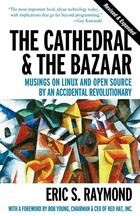Denmark's Bold Move: Trading Microsoft for Open Source Digital Sovereignty
Denmark is making headlines with a significant tech policy shift that could reshape how governments approach digital infrastructure. The Danish Ministry of Digitization has announced plans to completely abandon Microsoft products, replacing Windows with Linux and Office 365 with LibreOffice by fall 2025.
The Strategic Context
This isn't just about software preferences—it's about digital sovereignty. Minister Caroline Stage has positioned this move within Denmark's broader digitalization strategy, prioritizing independence from foreign tech giants. The timing is particularly noteworthy, coinciding with geopolitical tensions including President Trump's controversial statements about Greenland and concerns raised by the International Criminal Court's Microsoft email disconnection incident.
The initiative extends beyond the ministry itself. Copenhagen and Aarhus, Denmark's largest municipalities, have initiated similar transitions, suggesting a coordinated national effort to reduce dependency on U.S. technology companies.
The Implementation Challenge
While the political motivation is clear, the technical reality presents significant hurdles. Replacing desktop applications is only the tip of the iceberg. The real complexity lies in the underlying infrastructure ecosystem that organizations have built around Microsoft's platform.
Authentication systems, email infrastructure, file sharing, endpoint management, and collaborative tools all need comprehensive replacement strategies. Many organizations discover that their supposed "Microsoft replacement" still relies heavily on Microsoft backend services, creating hybrid environments that can be more complex and costly than the original setup.
The Collaboration Gap
One critical limitation that organizations often underestimate is real-time collaboration capabilities. While LibreOffice excels as a traditional office suite, it lacks the seamless multi-user editing features that have become standard in modern workplace environments. This gap becomes particularly pronounced in government settings where document collaboration is essential.
However, the open source community is actively addressing these limitations, with new solutions like ZetaOffice emerging to bridge the collaboration divide.
Beyond Cost Savings
The financial argument for open source adoption extends beyond license fee elimination. Governments worldwide spend enormous sums on proprietary software licensing—money that could theoretically be redirected toward improving open source alternatives. This creates a compelling case for coordinated government investment in open source development.
Yet the transition costs, training requirements, and productivity impacts during migration periods often exceed initial projections. Success requires substantial upfront investment in planning, infrastructure redesign, and user education.
Learning from Global Examples
Denmark isn't pioneering this approach in isolation. Countries like Russia, China, and India have invested heavily in developing comprehensive alternatives to Western productivity suites, primarily through companies like Yandex, Alibaba, and Zoho. These examples demonstrate both the feasibility and the substantial commitment required for successful transitions.
The Path Forward
Minister Stage's pragmatic approach—acknowledging the possibility of temporary rollbacks if the transition encounters difficulties—suggests a realistic understanding of the challenges ahead. The statement "We won't get any closer to the goal if we don't start" reflects both the urgency of digital sovereignty concerns and the experimental nature of this initiative.
The success or failure of Denmark's experiment will likely influence similar decisions across Europe and beyond. If executed thoughtfully with adequate planning and resources, it could demonstrate a viable path toward reduced dependency on dominant tech platforms.
Conclusion
Denmark's Microsoft exodus represents more than a software migration—it's a test case for digital sovereignty in an increasingly polarized world. While the technical challenges are substantial and the timeline ambitious, the initiative addresses legitimate concerns about technological dependency and data control.
The real question isn't whether Linux and LibreOffice can replace Windows and Office—it's whether governments can successfully orchestrate the comprehensive ecosystem transformation required for true digital independence. Denmark's experience will provide valuable lessons for any organization considering similar moves in our interconnected, yet increasingly fragmented, digital landscape.

